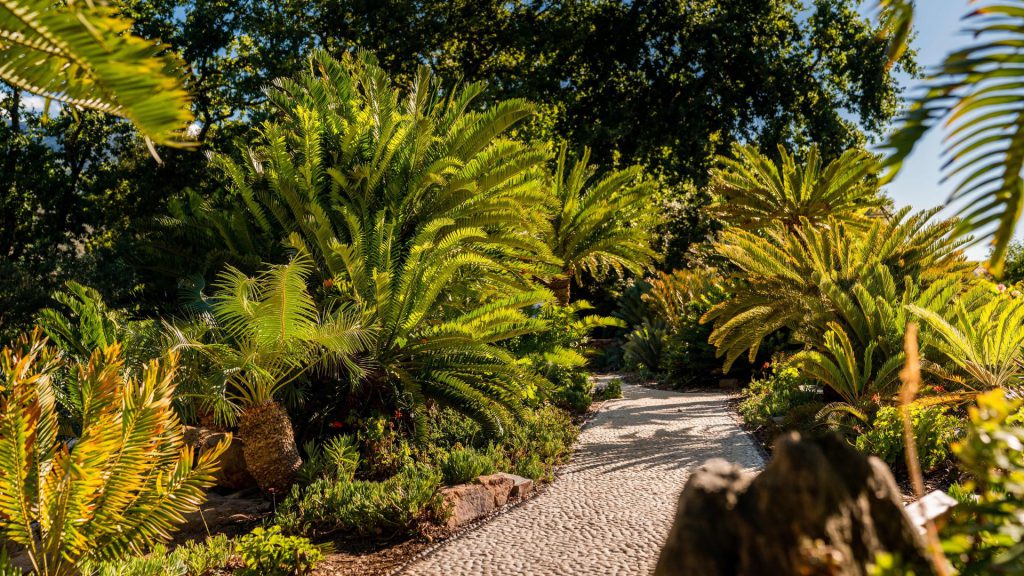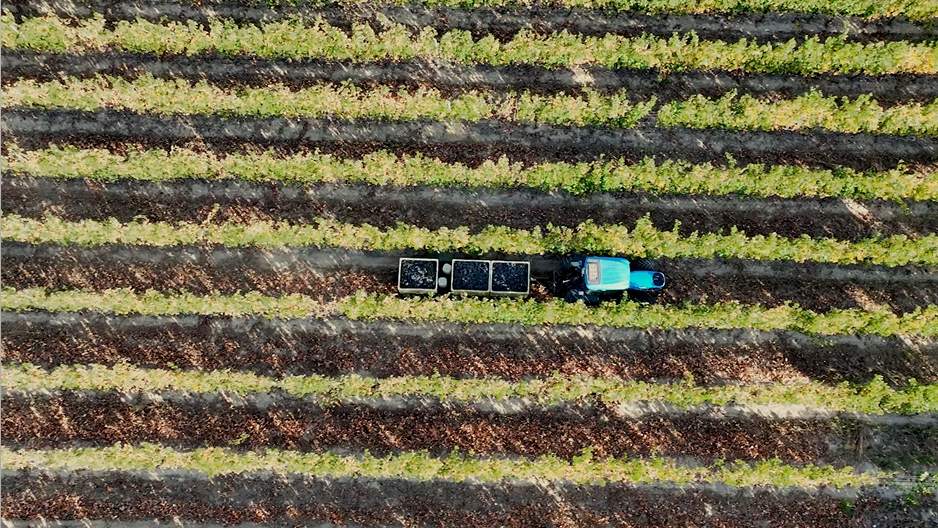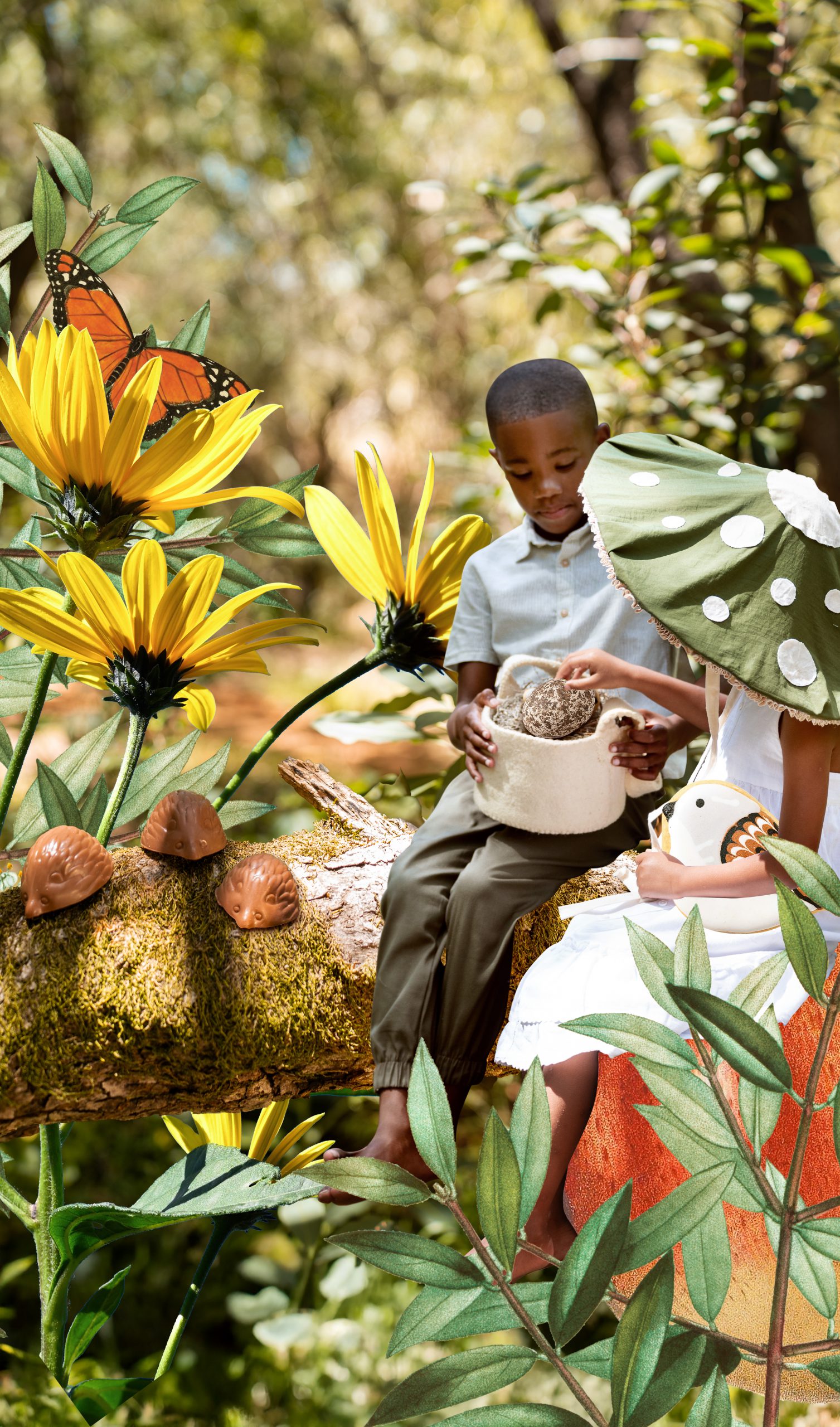Our new King Kong cycads are coming alive!
May 31st, 2023In true blockbuster style, two ancient and near-extinct beasts were trucked to Babylonstoren in custom-built 22-tonne steel crates. The parcel? Encephalartos woodii cycads.
Thankfully, the more-than-a-century-old Wood’s cycads are shooting fresh leaves following their elaborate and high-risk transplanting procedure.
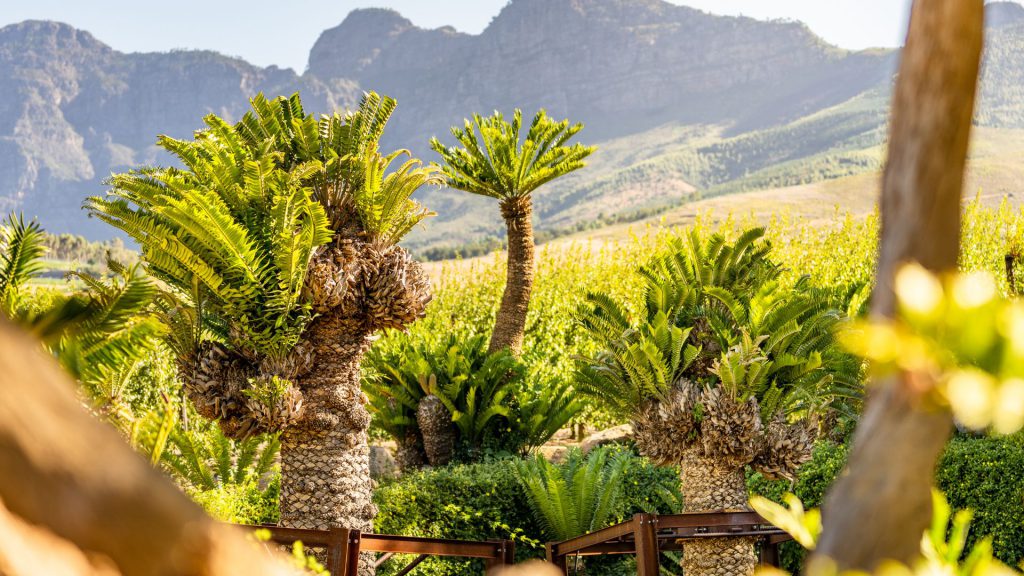
Wood’s cycad or Encephalartos woodii is known for its giant stature. A single tree can reach a height of six metres, with the trunk measuring up to 50 centimetres in diameter. The species is entirely extinct in the wild and all living specimens are clones, meaning the two new additions at Babylonstoren share the exact same DNA.
It is believed that the two giants were grown from suckers taken from the original and famous specimens planted in the Durban Botanic Gardens. The young plants were housed in various Durban gardens until landscaper Allen Huntley transplanted the two trees with a mobile crane in 1991 to the garden of Robin Thorpe in Durban, where it stood up until 2021. For the last move, the cycads were trimmed completely to ensure easier handling and collected from Durban with a crane and truck.
King Kongs unearthed
Custom-design steel cages – built to accommodate each individual stem with soil and roots intact – secured the fragile 22-tonne parcel on its trek to the Western Cape. The trees were finally secured in their new location in November 2021.
According to Babylonstoren master botanist Ernst van Jaarsveld, “They are the King Kongs of the cycad realm”. Their overall journey to Babylonstoren stretches over centuries. Originally endemic to the oNgoye Forest of KwaZulu-Natal, the only known wild plants were a cluster of four stems – all from one plant – discovered by John Medley Wood in 1895. Both the Latin and common names honour Wood, who was the curator of the Durban Botanic Gardens and director of the Natal Government Herbarium of South Africa.
The most famous specimen of Encephalartos woodii can still be seen here and, scientifically speaking, Babylonstoren’s two trees are exact replicas of this tree.
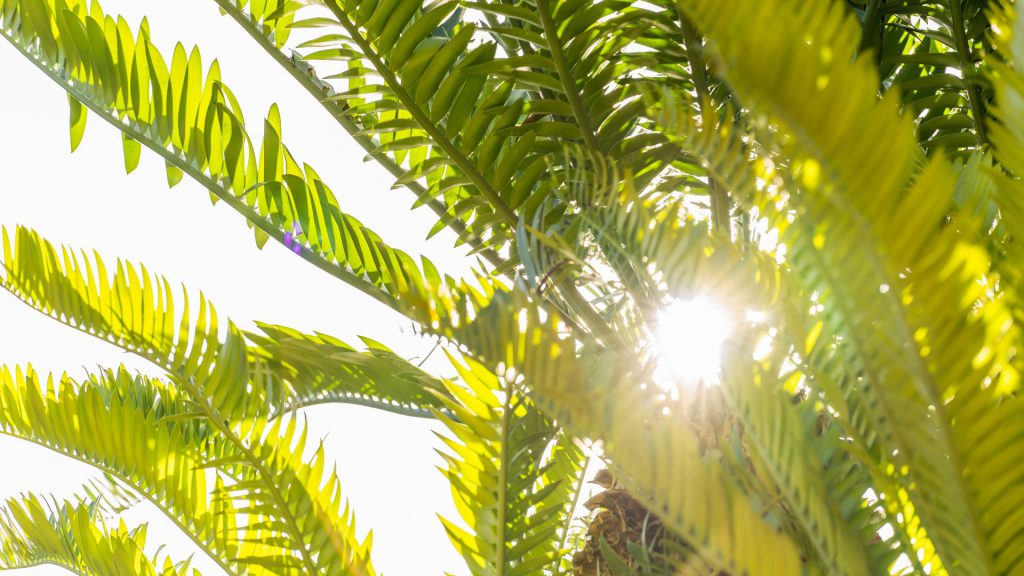
Sex change?
Encephalartos woodii are dioecious, meaning they have separate male and female plants. No female Encephalartos woodii plant has ever been discovered and unless a female plant is found, it will never reproduce naturally.
However, according to Van Jaarsveld, “There might still be hope for sexual reproduction. Cycads hold the ability to undergo a sex change from male to female, known as organogenesis. Scientists are baffled by the phenomenon but believe it may occur in very specific circumstances when the plants are subjected to stress. Although every effort is made to ensure the new Babylonstoren plants do not undergo too much stress with their transplant, we are living in hope that one of the Babylonstoren trees may change its gender and that we’ll be able to see the species upgrade from its current status of being extinct in the wild.”
Should organogenesis not occur, another way in which the species can be saved from extinction would be via a technique known as backcrossing. Famously, the mountain zebra was bred from extinction using this method and the same can, theoretically, be done to save Wood’s cycad. The species is known to form fertile hybrids with another species namely Encephalartos natalensis, and each of these offspring can subsequently be crossed with a male Encephalartos woodii specimen. If the process is then repeated, after several generations, female offspring could be recreated to have a near-identical genetic code to what an original female Encephalartos woodii would have possessed.
And although we have high hopes for the future of the Wood’s cycads at Babylonstoren, for now our garden team is keeping the focus on the short term.
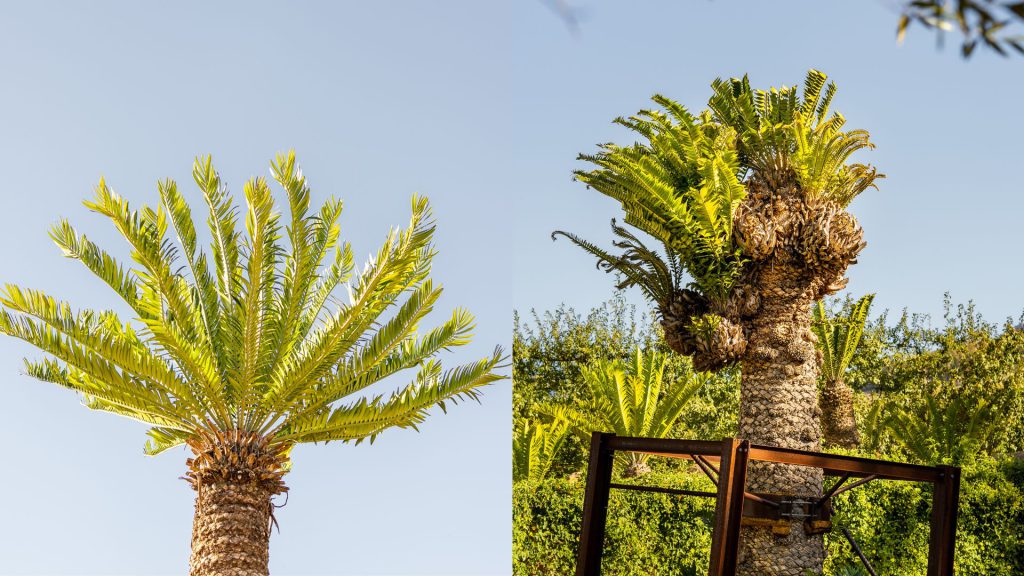
Modern dinosaurs living at Babylonstoren
Babylonstoren head gardener Alex Bosman says, “Although we are elated about new shoots on the transplanted trees, we’re not out of the woods yet – excuse the pun. Many of these old trees may have a flush of new growth as a response to stress or disturbance, such as transplantation. However, they are super resilient creatures that have stood for hundreds, even thousands, of years and we are counting on their tough nature. We will do everything in our power to ensure that the new Babylonstoren cycads can live for millennia more.”
Cycads are among the oldest plant species on earth, with genetics dating back to the dinosaur era. They’re some of the world’s most collectable plants for their impressive visual impact. Babylonstoren’s new trees are no exception – come see for yourself in our cycad garden across the white bridge by the lotus ponds.
